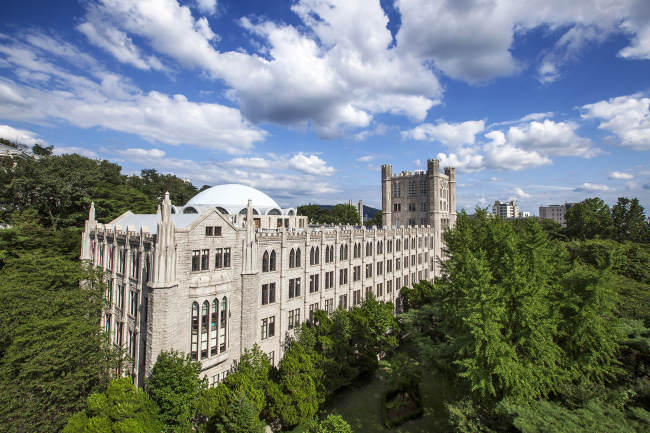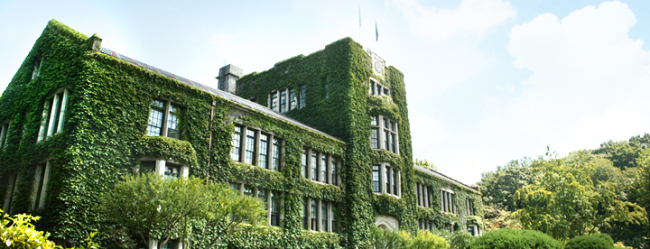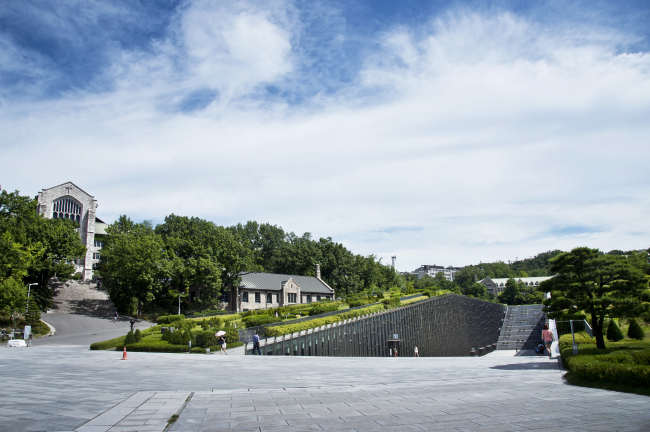[Weekender] Winds of change sweep universities, student life
By 안성미Published : Aug. 7, 2015 - 17:46
Like almost everything else in Korea, universities here have seen dramatic changes over the past few decades.
In the years immediately following the 1950-1953 Korean War, universities were home to the offspring of the few who could afford higher education for their children.
As the country’s economy grew, university education became more widely available and the universities became the breeding grounds for diverse aspects of society, from democracy movements and political ideologies to popular culture.
In the years immediately following the 1950-1953 Korean War, universities were home to the offspring of the few who could afford higher education for their children.
As the country’s economy grew, university education became more widely available and the universities became the breeding grounds for diverse aspects of society, from democracy movements and political ideologies to popular culture.

But in the more recent years, university campuses have come more closely to resemble construction sites.
With the government introducing categories concerning facilities in assessing institutions of higher education, many universities have taken to packing as many buildings as possible in to their grounds.
As twentysomethings have gained more spending power, some universities have rented space within their grounds for commercial establishments such as cafes and convenience stores.
Such implementations have sparked debate over whether commercial facilities are there for the students, or to help the universities make more money.

The biggest changes, however, may be those visible in the students.
Once, university students were the driving force behind social change, and universities were the epicenter of democracy movements.
It was not long ago that university campuses and surrounding areas were enshrouded in tear gas the police deployed to bring demonstrations under control. Chiefs of student bodies were often wanted by the authorities for actions against dictatorial governments; some spent months hiding at religious facilities.
These days, students are more concerned about their so-called “specs” -- or specifications, like qualifications and certificates deemed desirable by potential employers -- than social issues.
“Back in my day, we were almost required to take part in demonstrations. I think we cared about the country more than today’s kids,” said Park, who attended a university in Seoul in the mid-1980s and declined to be identified further. He added that although he was jailed for a number of months for organizing demonstrations, which led to certain disadvantages in life, he regrets nothing about his actions.
“Today’s kids seem to care only about getting a job after graduation. We had the same worries, but still we did more than just look out for ourselves. Universities seem to have lost the romance, and turned into vocational schools.”

Those who studied even earlier seem to consider students of both today and of the ‘80s self-absorbed.
“I considered student activists to be ‘talking on a full stomach,’” said retiree Lee Young-cho, who attended university in the early 1970s.
The Korean expression “talking on a full stomach” implies a person’s opinion is formed without actual knowledge of hardship.
“Ideals are good, but for people in our time, real-life concerns like graduating as soon as possible to help the family was the bigger concern. Today’s kids, though, seem to be thinking just about themselves.”
While older generations may have varying degrees of disdain for university students now, “today’s kids” also have much to say.
One recent graduate says there is no romance in university life, saying that she and all of her friends spent their vacations doing internships and getting certificates to prepare for the tough labor market.
Still others say that the times dictate how students act.
“For us, the future is uncertain, whereas older people knew that better things were in store for them,” a student of a Seoul-based university said, declining to be named.
“So, although students focus (on academics and qualifications), if we are not fully engaged in each moment, there is little meaning to day-to-day life. That’s why (today’s students) try very hard to find small pleasures.”
By Choi He-suk (cheesuk@heraldcorp.com)




![[Herald Interview] 'Amid aging population, Korea to invite more young professionals from overseas'](http://res.heraldm.com/phpwas/restmb_idxmake.php?idx=644&simg=/content/image/2024/04/24/20240424050844_0.jpg&u=20240424200058)











![[KH Explains] Korean shipbuilding stocks rally: Real growth or bubble?](http://res.heraldm.com/phpwas/restmb_idxmake.php?idx=652&simg=/content/image/2024/04/25/20240425050656_0.jpg&u=)

